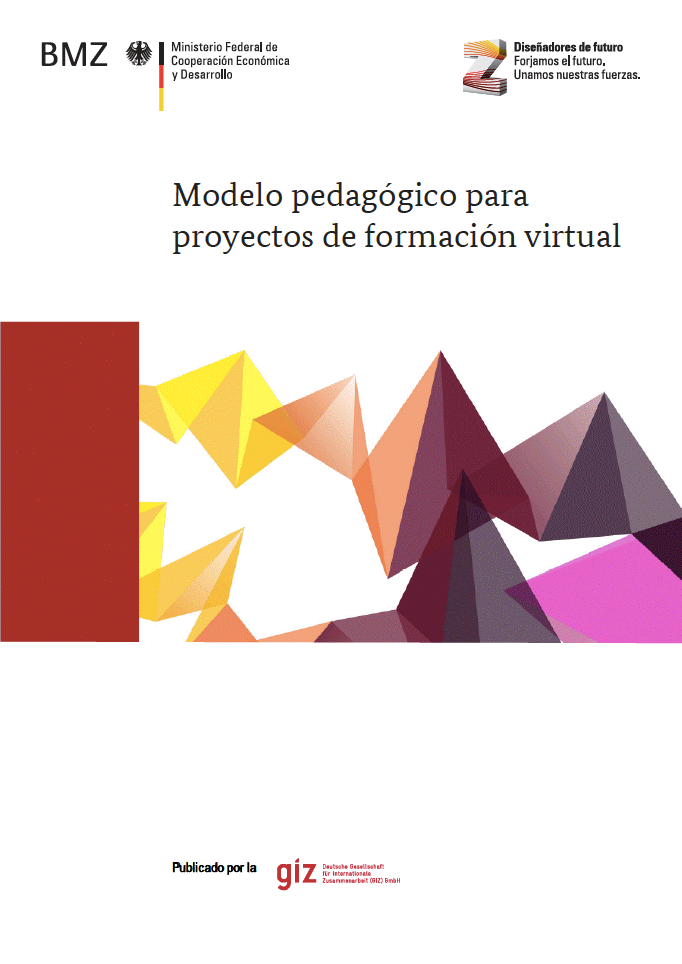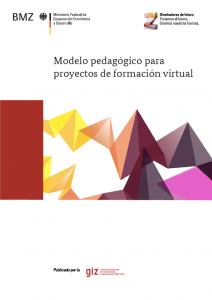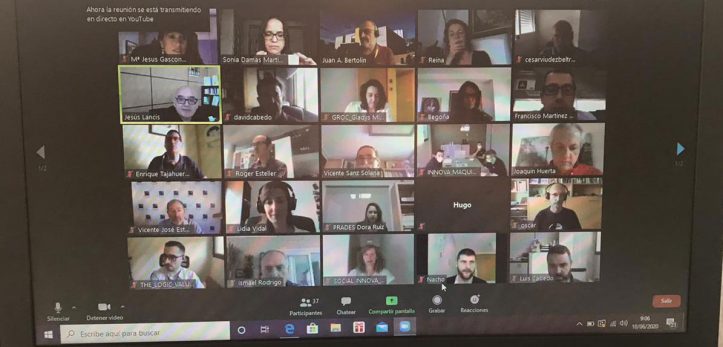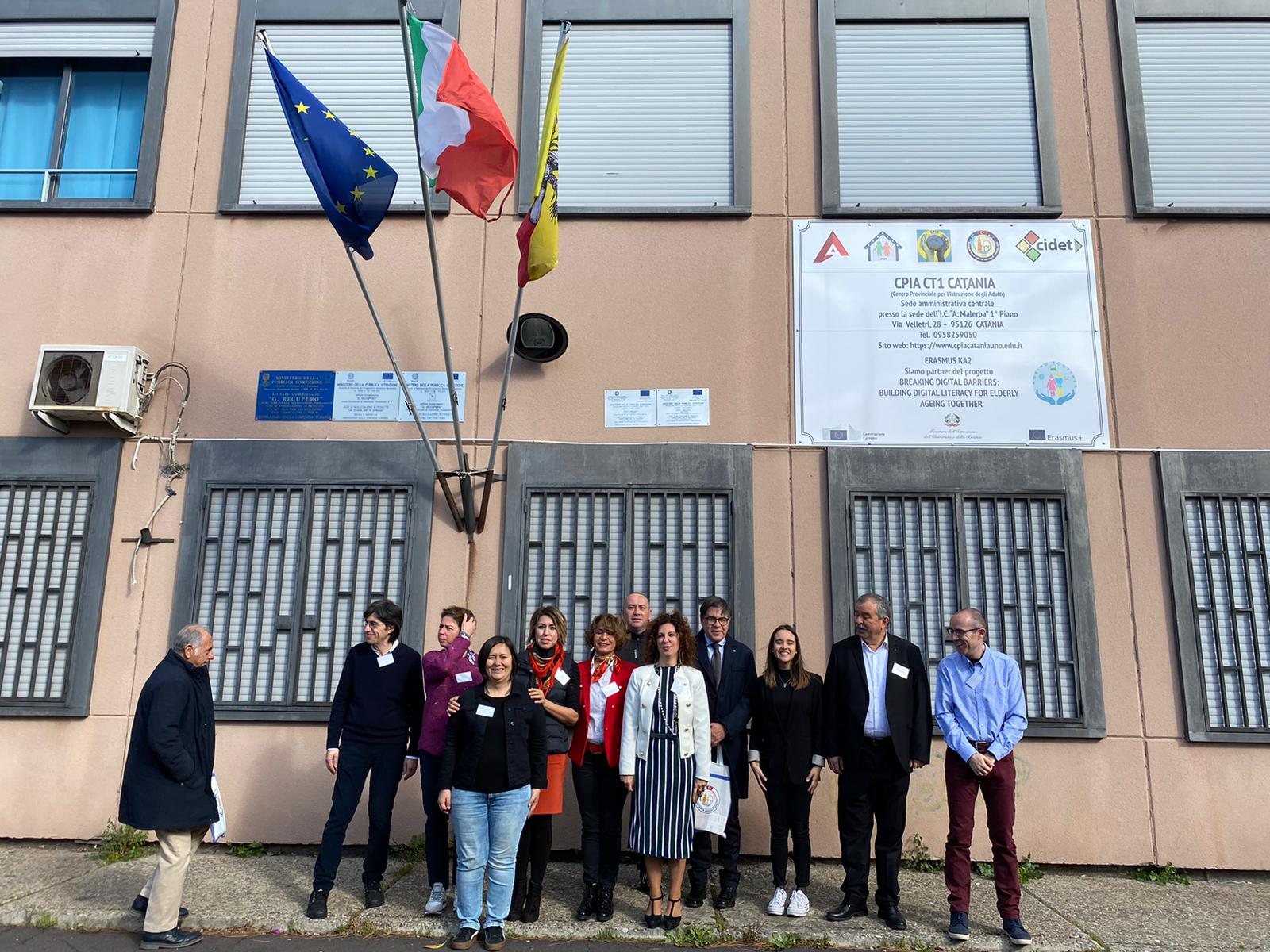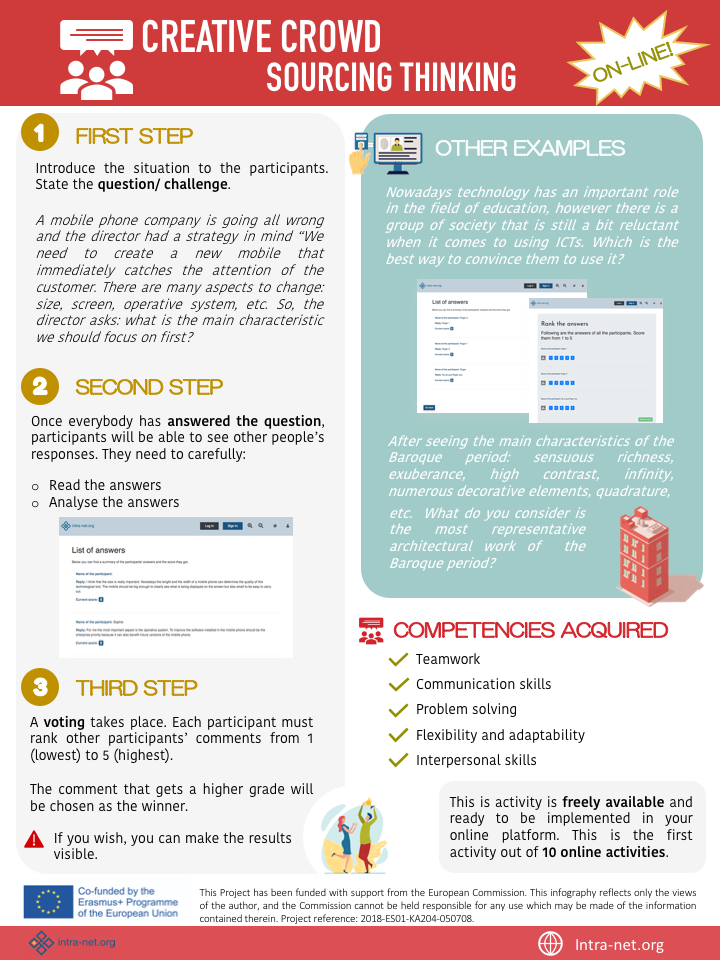In 2009, the German Federal Ministry for Economic Cooperation and Development drew an interesting pedagogical model for virtual formation projects.
This proposal aims at benefitting from the possibilities of virtual education and at facing possible difficulties that might arise when dealing with this type of learning. When we prepare to draw the academic programs that are going to be offered, the purpose and the personal and professional profiles of the target audience have to be clear. Additionally, the joining requirements have also to be settled. Likewise, it is necessary to draft a concrete working methodology, to determine which courses will take part of the curricular program and the type of certifications that will be given.
Each course of the program has to be drawn with the purpose of achieving a coherent and logical organisation of its content and trainging activities. Moreover, the methodological purpose of eLearning has to implement a virtual platform, that is, it has to build the virtual environment of the learning process. It is required to guarantee a concept of pedagogical intervention that guides students towards academic success, which implies a constant support, individualised assistance and permanent feedback. In the same way, it is also important to promote students’ commitment, since, regardless the excellence of the proposal, the learning process would be worthless if the student does not feel committed to it. Finally, the implement of an evaluation of the quality standards which substantiates the virtual proposal and the continuous investigation to improve and edit it are also required.
Steps to develop an eLearning methodology:
- Drawing of academic programs: during this stage, the general and specific objectives, the targeted audience, the academic and occupational profiles, the length of the program and the distrubtion of the different sessions will have to be determined.
- Drawing the course: the specific aspects of the course, based on the institution and related to eLearning as the name of the course, the start and due date, the general objectives, number of participants, required background knowledge, number of tutors, assistance, etc have to be kept in mind.
- Virtual learning environment: give a motivational welcome and instructions for students, clearly explain activities’ deadlines, invitation to exchange ideas, use forums correctly, etc.
- Pedagogical mediation and virtual tutor: it has to be present in content, in activities’ consignment and during the whole period in which the course takes place and through the tutor.
- Student’s commitment: teachers have to employ all the available means to motivate, share, discuss, talk, comment and stimulate students to improve their motivation.
- Continuous improvement: we always have to adapt to new adjustments, so evaluation and investigation are the key to improve our courses.
You can download the whole article by clicking on this image:

